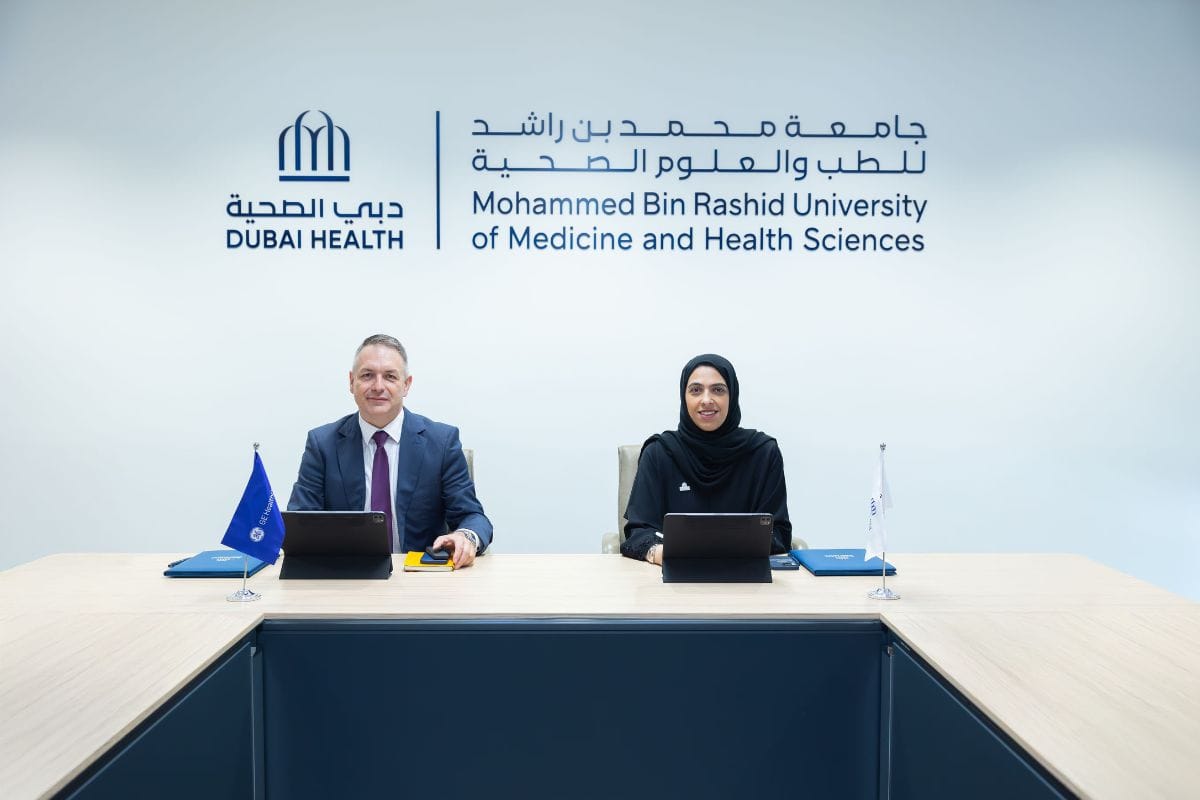Dubai and GE HealthCare Forge Path for Advanced Ultrasound Education and AI Innovations in Healthcare
In a significant advancement for medical education and innovation within the United Arab Emirates (UAE) and the broader Middle East and North Africa (MENA) region, Dubai Health and GE HealthCare have announced a groundbreaking partnership through the signing of a Memorandum of Understanding (MoU). This collaboration aims to enhance Point-of-Care Ultrasound (POCUS) education and clinical innovation, thereby setting a new standard for healthcare delivery.
At the heart of this initiative lies the ambition to develop advanced artificial intelligence (AI) solutions designed to improve diagnostics, clinical decision-making, and ultimately, patient outcomes. This commitment not only emphasizes the importance of technological integration in healthcare but also highlights the necessity of continuous education for healthcare professionals, crucial for addressing the evolving challenges in medical practice.
A notable aspect of this partnership is the establishment of the Mohammed Bin Rashid University of Medicine and Health Sciences (MBRU) as a “POCUS Education Center of Excellence.” This designation positions MBRU as a leader in ultrasound training in the region, underscoring its pivotal role in developing a well-trained workforce capable of leveraging advanced medical technologies.
One of the cornerstone initiatives introduced under this agreement is the structured Train-the-Trainer (TOT) program. This initiative is designed to equip certified facilitators and instructors with the necessary resources and skills to disseminate POCUS education more broadly. By establishing a sustainable model for expertise development, this program aims to ensure that the benefits of such education extend well beyond initial training, fostering a culture of continuous learning and adaptation within the medical community.
In tandem with educational efforts, Dubai Health Innovations will collaborate with GE HealthCare to co-develop and validate AI-powered solutions in key areas such as radiology and computer vision. The objective is clear: to improve diagnostic accuracy, streamline workflows, and facilitate the earlier detection of medical conditions through the application of sophisticated digital tools. Such advancements have profound implications, not only for immediate patient care but also for long-term health outcomes across the population.
Dr. Hanan Al Suwaidi, Acting Chief Academic Officer of Dubai Health and Provost of MBRU, articulated the transformative potential of this initiative, stating, “By building capacity in POCUS education and co-developing AI-powered solutions, we are empowering clinicians with next-generation technologies to improve patient outcomes.” Her remarks convey the optimistic outlook this partnership embodies, one that seeks to harness technology to revolutionize traditional healthcare practices.
Echoing this sentiment, Konstantinos Deligiannis, President of GE HealthCare EAGM, emphasized the commitment to integrating innovative solutions within clinical practices, stating, “By combining our advanced ultrasound technology with innovative AI solutions, we are committed to enhancing diagnostic accuracy and efficiency.” His acknowledgment of the interplay between AI technology and medical diagnostics reflects a broader trend in the global healthcare industry, where data-driven technologies are increasingly being recognized for their potential to revolutionize patient care paradigms.
The MoU establishes an initial two-year term, with provisions for renewal, signaling a long-term commitment to fostering sustainable healthcare transformation in the region. This endeavor is envisioned not only to enhance the capabilities of healthcare professionals but also to contribute significantly to the UAE’s broader health innovation agenda.
As Dubai continues to position itself as a leader in healthcare excellence, partnerships such as this one with GE HealthCare are vital. They underscore the importance of collaborative efforts that bring together academia, industry, and clinical practice to enhance healthcare delivery standards. In doing so, they pave the way for a future where innovative technologies and education work hand in hand to create improved health outcomes for populations across the MENA region.
As the UAE progresses toward its ambition of becoming a global hub for healthcare innovation, it is partnerships like these that will shape the future of medical education and patient care, ensuring that the region remains at the forefront of advancements in healthcare technology.
Tags: #HealthNews #EducationNews #UAE #EconomyNews #StartupsEntrepreneurship

